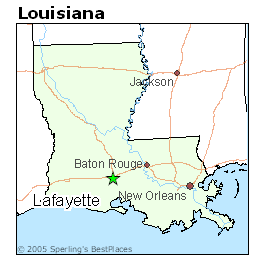 Stop the Cap! has written extensively about the American Legislative Exchange Council’s pervasive influence on state telecommunications policies long before Trayvon Martin and Florida’s “Stand Your Ground” law put a spotlight on the shadowy corporate-backed group in the national media.
Stop the Cap! has written extensively about the American Legislative Exchange Council’s pervasive influence on state telecommunications policies long before Trayvon Martin and Florida’s “Stand Your Ground” law put a spotlight on the shadowy corporate-backed group in the national media.
ALEC’s mission is clear. It acts as a go-between between corporate interests who customize business-friendly state legislation in their favor and the legislators willing to introduce those bills as their own. ALEC provides the cover some legislators need to protect their image in the public eye.
A handful of legislators in safe districts are bold enough to openly admit introducing legislation written by a company like AT&T. Take Kentucky Republican Sen. Paul Hornback. He introduced a deregulation measure in Kentucky’s state Senate that would do away with universal landline service and almost entirely deregulate AT&T’s operations in Kentucky. When the media found out Hornback introduced legislation AT&T actually wrote, he didn’t seem to mind one bit and doubled down on the apparent conflict of interest.
“You work with the authorities in any industry to figure out what they need to move that industry forward,” Hornback said, defending his bill that would do exactly that, at the expense of Kentucky consumers facing rate hikes AT&T has pushed in other states where similar measures were passed.
Hornback is the exception to the rule. For more timid legislators concerned about their next election campaign, ALEC is only too happy to provide cover.
When ALEC’s connection to Florida’s controversial “Stand Your Ground” law was exposed, it swept the secretive group into the Martin media tornado. When reports surfaced connecting the dots between ALEC and some of America’s largest corporations, Coca-Cola, Kraft Foods, Intuit, and Pepsi fled ALEC’s membership roster. No soft drink company wants to be connected to a controversial Florida gun law.
First Coca-Cola and Kraft Foods, Now AT&T
Today, Color of Change, a group dedicated to amplifying the voice of African-Americans to make government more responsive to minorities set its sights on AT&T, one of ALEC’s most prominent members.
They have a major fight on their hands. Few corporations have used ALEC as effectively as the descendant of Ma Bell. AT&T’s enormous lobbying machine has frequently used ALEC to help introduce deregulation measures in states across the country.
“Even after we wrote AT&T to let them know that more than 85,000 ColorOfChange members have asked that they disassociate themselves from ALEC, the company has remained silent,” says Color of Change. “It’s clear that they think we will just go away.”
![]() Throwing away their membership in ALEC would be a major blow to AT&T’s lobbyists who are well-connected inside the group. AT&T has several leadership roles within ALEC’s various state chapters:
Throwing away their membership in ALEC would be a major blow to AT&T’s lobbyists who are well-connected inside the group. AT&T has several leadership roles within ALEC’s various state chapters:
ALEC State Chairs Affiliated With AT&T
- Arkansas:
— Ted Mullenix, AT&T - California:
— Pete Anderson, AT&T - Connecticut:
— John Emra, AT&T - Louisiana:
— Daniel Wilson, AT&T - Mississippi:
— Randal Russell, AT&T - Texas:
— Holly Reed, AT&T
How do these ALEC-involved lobbyists influence elected officials? They wine and dine lawmakers and their families, encouraging them to introduce legislation favorable to AT&T.
Everyone Knows Randy Russell – AT&T’s Go-To-Guy in Mississippi
AT&T lobbyist Randy Russell has been representing the interests of Big Telecom in Mississippi for more than a decade. Originally registered as a lobbyist for AT&T predecessor BellSouth, Russell today also serves as ALEC’s state chairman in the Magnolia State.
When he isn’t spending his time in the state capital — Jackson — he’s wining and dining lawmakers who might be future supporters of AT&T’s business agenda in the legislature.
Lucky for AT&T Russell found Rep. Jim Beckett (R-Bruce). And what a find. Beckett is in the catbird seat, serving as chairman of the House Public Utilities Committee — the oversight committee responsible for ensuring that when someone in Mississippi picks up a phone, there is actually a dial tone.
Unfortunately for Mississippi consumers Beckett has AT&T’s Russell on his speed dial.
The Cottonmouth Blog discovered both men have spent a lot of time together:
It seems that Russell and AT&T picked up the food tab for Rep. Jim Beckett and his wife at the ALEC meeting in at the Westin Kierland Resort in Scottsdale, Ariz. from November 30 to December 2, 2011. AT&T also paid for a few rounds of golf for Rep. Beckett while there. All said and done, AT&T paid $565.39 to cover expenses for Rep. Beckett and his wife on their three day trip to Scottsdale.
But that’s not all. AT&T also picked up the tab for $151.70 worth of food and tickets while Rep. Beckett and his wife were at the Spring ALEC meeting in Cincinnati, OH in late April of 2011. AT&T also paid $22.62 for food for Rep. Beckett and his wife while he attended the 2011 Summer ALEC meeting in New Orleans.
The total amount AT&T gave to Rep. Jim Beckett and his wife in 2011 through Randy Russell? $876.85. The names of the Becketts appear a total of 36 times in AT&T’s 2011 lobbying report, most of it while the Becketts are at ALEC retreats.
AT&T also helped more directly with $2,500 in campaign contributions to Beckett’s campaign fund. What did all of AT&T’s money and travel vouchers buy them?
House Bill 825 — ‘The AT&T Total Deregulation Act’: A bill introduced by none other than Rep. Beckett that would effectively strip what remaining oversight exists over AT&T’s operations in Mississippi. It’s a bill very familiar to Stop the Cap!, because it includes all of the usual “bullet points” found in ALEC’s own legislative database — all of enormous interest and importance to AT&T.
Northern District Public Service Commissioner Brandon Presley, who deals with consumer complaints about AT&T’s service in the state, effectively called HB 825 an unmitigated disaster for ratepayers from Corinth in the north to Biloxi in the south:
[…] House Bill 825 would totally strip the PSC of any authority to hold AT&T accountable for rate increases and lousy landline and cell phone coverage. Presley said the bill was requested by AT&T as retaliation against the PSC for denying a rate increase and for complaining of poor cellular and residential phone service. The PSC won a case in the Mississippi Supreme Court to limit charges to customers after AT&T appealed the PSC’s ruling.
[…] Presley said the Legislature passed the first phase of deregulation in 2006 and since then complaints to the Commission about billing errors, poor service and the like have risen from 1,735 in 2006 to 4,361 in 2011 an increase of over 150%. “This is evidence enough of why this bill is bad for consumers.”
[…] Along with removing all of the Public Service Commission’s authority to investigate abuses, extortion and customer complaints, House Bill 825 also removes the Commission’s authority to designate conditions for AT&T’s receiving of millions in federal funds to promote rural cell phone service. Presley said the Commission’s authority to place conditions on those dollars has been the main tool to increase cell phone coverage in rural counties. “Rural Mississippi’s interests are gutted in this bill.” Presley said.
Cottonmouth reminds readers who may not be familiar with Mississippi that Beckett’s home district — Bruce — puts his AT&T ghost-written legislation at odds with his own constituents:
“Bruce [isn’t] exactly urban,” the blogger writes. “Matter of fact, anyone who has driven on Highway 7 right outside of Bruce and tried to make an AT&T cell phone call could tell you just how much this bill will hurt Rep. Beckett’s constituents.”
Even Beckett’s fellow Republicans serving the state PSC couldn’t stomach the legislation that guaranteed even more customer complaints. Southern District Public Service Commissioner Leonard Bentz issued his own press release attacking the bill:
“This is a very bad bill for consumers in Mississippi,” Commissioner Bentz stated. “Even though AT&T will tell you that the oversight that we [PSC] have is limited, the little we do have is piece of mind for the consumers.”
“You don’t have to think very long to understand why this bill is bad. Think back to last time you called in a problem to AT&T and the lack of customer service you received. This bill would make it worse. It is important to understand AT&T will lead you to believe this bill will affect only a small number of customers, but that is not so. As it stands right now, all customers with AT&T have the ability to file complaints with the Public Service Commission, and have the PSC on their side to help them navigate the system. The bill clearly states customer appeals will be removed from the PSC jurisdiction.
 The third commissioner on the PSC, Republican Central District Public Service Commissioner Lynn Posey, hoped HB 825 would simply go away, seeking to bury it in a “study committee.”
The third commissioner on the PSC, Republican Central District Public Service Commissioner Lynn Posey, hoped HB 825 would simply go away, seeking to bury it in a “study committee.”
Despite the universal opposition to the measure among those tasked with overseeing the state’s phone companies, Beckett decided AT&T knew better and quickly pushed HB 825 through his committee. What makes Beckett an expert in telecommunications policy? Not too much: He calls himself a lawyer on his biography page, but he’s also the owner of Beckett Oil & Gas.
Despite efforts by consumer advocates, a slightly-amended measure passed both the Republican-controlled state House and Senate and this week will be sent to the desk Gov. Phil Bryant for his signature.
“The small telephone companies in this state, many of them are opposed to this,” said Rep. Cecil Brown (D-Jackson). “If it hurts their business, it’s going to hurt your local communities. That’s all there is to it.”
The price the phone company paid to get Rep. Beckett on Team AT&T?: $2,500 + ALEC-sponsored free meals and travel.
[flv]http://www.phillipdampier.com/video/KTTC Rochester ALEC 2-3-12.mp4[/flv]
KTTP in Rochester, Minn. explores the influence of state lobbyists working with ALEC who push lawmakers to introduce legislation corporations wrote themselves. (4 minutes)


 Subscribe
Subscribe










